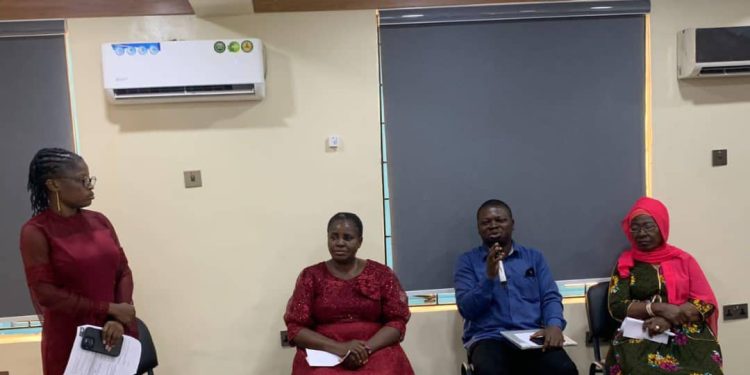Stakeholders have called on the Lagos State Government to prioritize and improve access to family planning services in the state.
This call was made during a recent roundtable discussion organized by FP Lagos Media Advocacy Forum with support from The Challenge Initiative (TCI). The roundtable discussion brought together key stakeholders, including media practioners, health officials, and community mobilizers.
According to the stakeholders, improving access to family planning services is crucial in reducing maternal and newborn mortality in the state.
They also provided an insightful look into the current state of family planning efforts in the region as stakeholder urged men to be involved in family planning decisions.
Dr. Mrs. Ajoke Ashiru, Chairperson of Interfaith Public Health Advocacy Lagos (IPHAL), emphasized the role of religious leaders in reducing maternal and newborn mortality. She stressed that religious communities have a significant influence on societal health decisions and their involvement in family planning initiatives can help shift cultural and religious barriers.

“Our efforts in the state have led to increased visibility and awareness. We’ve also trained numerous mobilizers, enhancing their capacity to drive change,” Dr. Ashiru stated as she noted that demand generation is crucial, “particularly in the five-hour area I previously discussed. Generating demand is key, and I’d like to reiterate the importance of this.”
Dr. Ashiru explained that IPHAL had trained many mobilizers to reach women in local communities as she also harped on the importance of mobilizing communities.
“We station mobilizers to do what we call intimate mobilization. Looking at some of the service integration, we talk to women who come for services about family planning.
“Women who have an intention to use a form of family planning are given a referral. Even if they don’t decide at that moment, the referral is still with them, and when they do choose, they are directed to the facility,” she explained.
The roundtable also included a presentation from a representative of The Challenge Initiative (TCI), a program designed to accelerate family planning efforts. The stakeholder who represented the TCI Program manager shared the latest updates on the TCI program, including the news that although the project officially closed in May 2024, it had been extended to ensure the desired results were achieved. This extension allows continued support for family planning initiatives in Lagos State.
Dr Ashiru noted that there is a need to involve men more actively in family planning decisions. Historically, family planning has been seen as a women’s issue, but experts believe that shifting the focus to include men is crucial for making lasting change.
Stakeholders at the roundtable also echoed this sentiment, noting that men’s involvement in family planning decisions can greatly influence women’s choices.
On his part, Mr. Olusegun Badejo, State Health Educator at the Ministry of Health, who was represented by Mrs. Samuel Esther, Deputy Director of Health Education, said the state has seen positive and encouraging outcomes from the community engagement embarked upon on family planning.
She said, “the types of questions people ask and their level of interest show that our message is resonating.
“We advise people to share the information they receive with other members of the community. This way, we ensure that the knowledge spreads and that the community becomes more receptive.”
Responding to a participant who asked how the organization is responding to side effects of family planning, Dr. Ashiru said women are properly educated about side effects and given varieties of options of family planning to choose from.
“We are committed to providing accurate information and supporting women in making the right choices for their health.
“If a woman experiences side effects, she is encouraged to visit a clinic where she can be given advice and explore other family planning methods,” she explained.
The event also showed Lagos State’s comprehensive approach to family planning. Over the years, the state has invested in social mobilization and training programs to combat misinformation about family planning. These programs target social mobilization committees, voluntary health committees, and healthcare educators, among others.
“By collaborating with the media and leveraging public campaigns through social media, television, radio, and other channels, we ensure that accurate information reaches the people,” Dr. Ashiru said.

